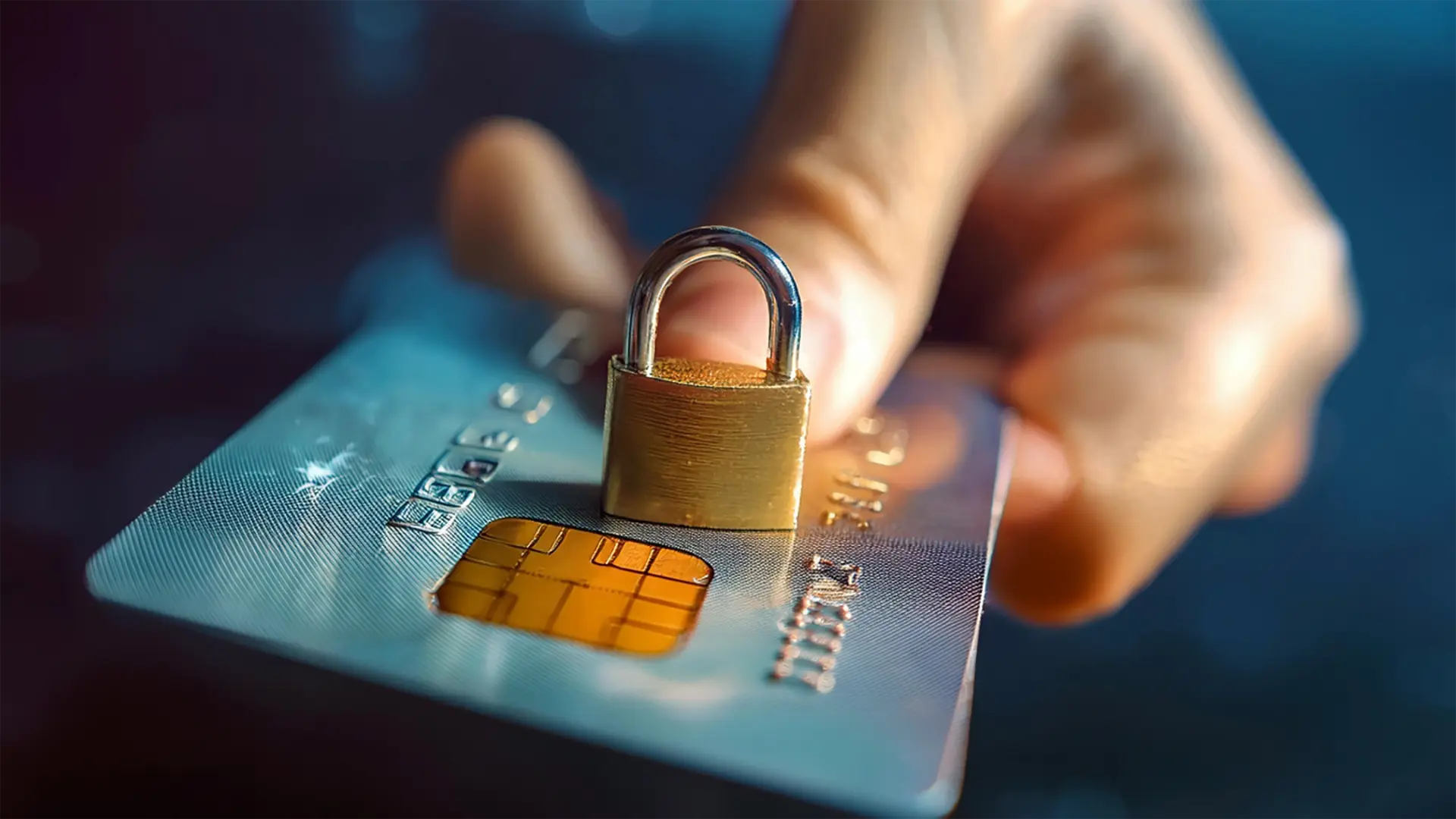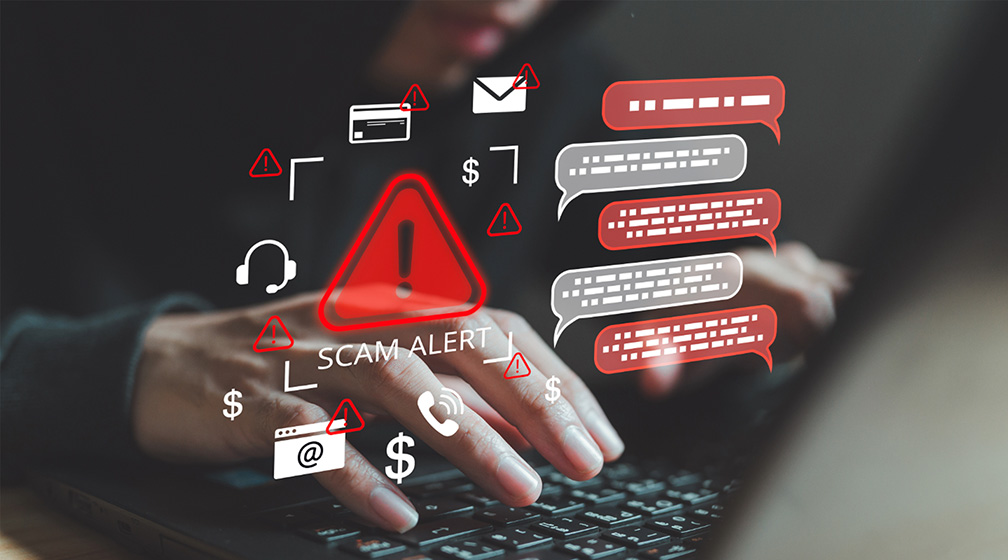
Text message scams are becoming more common, and more convincing. The FBI is warning the public about a surge in phishing scams where people receive fake text messages claiming to be from your state’s Department of Motor Vehicles (DMV). Forbes reports that these scams have surged more than 700% this month.
DMV text scam messages typically claim you owe money for unpaid traffic tickets and warn of fines, license suspension, or even prosecution if you don’t act fast.
These messages may look official, but they are a scam.
Knowing how to spot these fake messages can help you avoid costly consequences. Here’s what to watch for, and what to do if you receive a DMV scam text message.
What Is a DMV Text Scam?
A DMV text scam is a type of phishing scam where fraudsters impersonate a state DMV agency to try to trick you into clicking a malicious link or sharing sensitive information.
These scam messages often claim different things as pressure or scare tactics, such as:
- You owe money for a traffic ticket
- Your license is suspended or expired
- Your registration needs renewal
- You owe late fees
- You must verify personal details
- You’re eligible for a refund or rebate
These scam texts are designed to mislead people into acting quickly with their sense of urgency. However, DMV agencies typically communicate through mail or official state portals, not by unsolicited text messages.
What Happens When You Click a Link from a DMV Scam Text
DMV scam texts often include a link that appears legitimate. But once you click or paste it into your browser, one of two things typically happens:
- You're asked to provide sensitive personal information.
- Malware is silently installed on your device.
Both scenarios can put your identity and financial security at serious risk.
Phishing for Personal Information
Most commonly, the scammer’s goal is to steal your personal information or trick you into making a payment.
You may be redirected to a fake website that mimics your state’s DMV page, prompting you to enter personal details like your:
- Name and address
- Driver’s license number
- Social Security number
- Payment information
Once entered, this data can be used to commit identity theft, drain your bank accounts, or open new lines of credit in your name. Some sites also request immediate payment, stealing your money on the spot.
Installing Malware on Your Device
In more advanced scams, the link may trigger a malware download – sometimes without you even realizing it. (Yes, this can happen on mobile devices, too.)
Malware can:
- Harvest your login credentials and financial data
- Track your location and browsing activity
- Give scammers remote access to your device
- Spread to other devices via shared or unsecured Wi-Fi
One click can result in compromised security, potential financial loss, identity theft, and serious damage to your device or data.
A Warning from IdentityIQ Industry Expert
Jeffrey Mandel, President, Monetization at IdentityIQ, issued a stark warning about this growing threat:
“There is no limit to the sophistication and tactics used by cybercriminals to steal a consumer's personal information. Unfortunately, everyone has to be on high alert at all times for the nefarious approaches they use to play on people's sense of fear. Using a similar analogy that ‘if it seems to good to be true, then it's probably not true;’ if your common sense tells you that it doesn't look or feel right, then it's most likely not,” Mandel stated, highlighting the value of common sense strategies to protect against fraud like the current DMV text message scams.
Mandel added, “The key is to always stop and think, and do not ever act without taking the steps to verify the authenticity of messages and requests such as these.”
“Scammers prey on fear and urgency to trick you into acting fast. If something doesn’t feel right, it probably isn’t. Stop, think, and always double-check before clicking or sharing personal information.”
— Jeffrey Mandel, President, Monetization at IdentityIQ
How to Spot a Fake DMV Text
Scammers often use refined techniques to make these messages appear credible. However, there are several red flags you can learn to look for:
1. Unsolicited Message
If you receive a DMV-related text out of nowhere, especially if you haven’t interacted with the DMV recently, it’s likely a scam.
2. Foreign Phone Number
Scam text messages are often sent from a phone number with a foreign country code. If you receive a text message from a phone number that starts with anything other than the US country code of +1, it may be a scam.
3. Urgent or Threatening Language
Scammers rely on fear to get you to take quick action without stopping to think. Messages like “IMMEDIATE ACTION REQUIRED” or “Your license will be suspended” are designed to pressure you into clicking immediately.
4. Suspicious URLs
Look closely at the link in the message. DMV websites will use official .gov domains. Scammers often use misspelled or unrelated domains like “dmv-verify.com” or “dmv-help-now.net” to try to look legit.
5. Requests for Sensitive Information
DMV agencies never ask for your Social Security number, credit card details, or full driver’s license number via text.
6. Generic Greetings
Scam texts often start with a vague greeting like “Dear Driver” or “Customer” instead of your actual name.
7. Grammatical Errors
Professional government agencies typically avoid typos and poor grammar. Scam texts may include misspellings, punctuation errors, or wording that is awkward.
Are DMV Texts Ever Legit?
To determine if a DMV text is legitimate, follow these steps:
- Check the URL: All state DMVs use a .gov domain. If it’s anything else, it’s not legit.
- Visit the DMV Website Directly: Instead of clicking a link in a text, go directly to your state’s DMV site for their contact information or to log in to check your account.
- Contact the DMV Directly: Call or email your state’s DMV using contact info listed on their official website to ask questions.
- Don’t Respond: Even replying “STOP” can confirm your number is active, making you a target for more scams.
How to Avoid Being a Victim of DMV Text Scams
The best protection against DMV text scams is staying informed and skeptical. Follow these identity protection tips to help keep your personal data secure:
1. Enable Identity Theft Protection
A trusted service such as IdentityIQ can monitor your personal information, detect suspicious activity, and alert you if your identity and data is at risk. In the event of identity theft, you get access to fraud restoration experts who can help you recover quickly as well as identity theft insurance up to $1 million, underwritten by AIG.
2. Never Click Unknown Links
Avoid clicking on any links. Instead, type the DMV’s web address manually into your browser.
3. Use Multi-Factor Authentication
If your state DMV offers online account access, enable two-factor authentication for additional security.
4. Keep Your Devices Secure
Install security updates on your phone, use strong passwords, and avoid accessing sensitive accounts over public Wi-Fi.
5. Sign Up for Alerts from Your DMV
Some state DMV agencies allow you to sign up for email or text alerts. This helps you differentiate from a real notification and a scam text.
How to Report a DMV Text Scam
If you’ve received a suspicious DMV-related text message, reporting the spam text is crucial to help protect yourself and others. You should report the scam to the following agencies:
1. Federal Trade Commission (FTC)
- Visit reportfraud.ftc.gov
- Select “Phishing” and include details about the scam
2. The FBI Internet Crime Complaint Center (IC3)
- Visit ic3.gov
- Select “File a Complaint” and fill out the complaint form with details of the scam
3. The State DMV agency
- Go to the state’s DMV website and find its fraud or consumer protection contact page
- Report the phone number and content of the scam text
4. The Federal Communications Commission (FCC)
- File a complaint at consumercomplaints.fcc.gov
- Choose “Unwanted Calls and Texts” as the complaint type
5. Your Mobile Carrier
- Report the scam to your wireless provider. You can do this by copying the message and forwarding it to 7726 (SPAM) to alert your wireless provider.
What If I Clicked on the Link in a DMV Text Scam Message?
If you clicked the link in the scam text or entered in your information, there are actions you can take to help protect yourself. Here are steps you can take right away:
- Change your passwords immediately.
- Monitor your financial accounts.
- Place a fraud alert on your credit with the major credit bureaus (Equifax, Experian, TransUnion).
- Consider freezing your credit to prevent new accounts from being opened in your name.
- Make sure you have identity theft protection.
Identity theft protection is one of the few ways to make sure your data and accounts are safe in this era of rising scams and data breaches. Learn more about how identity theft protection works.
Why DMV Text Scams Are on the Rise
The rise in these DMV text scams is part of a broader trend of phishing attempts leveraging artificial intelligence (AI) to commit fraud. Scammers are able to quickly send these texts using AI tools while making the texts appear more convincing.
Fraudsters are using AI to robo-scam millions of Americans because they know that actions such as license renewals, vehicle registrations, address updates, and traffic tickets are something many deal with every year – so they have a large pool of potential victims.
And because most people don’t expect their identity or payment information to be compromised by a single text, they often don’t notice the damage until it’s too late.
Stay Protected with IdentityIQ
IdentityIQ helps you protect what matters most – your identity, privacy, and financial security.
IdentityIQ identity theft protection plans offer:
- 24/7 credit monitoring
- Alerts for suspicious activity
- Identity theft insurance underwritten by AIG
- Expert fraud restoration services
- Dark web monitoring
Don’t wait until you’re a victim of a DMV text scam. Let IdentityIQ help you take control of your identity and personal data today.
Bottom Line
Scammers are getting more creative, but you can stay one step ahead by being informed. If you receive an unsolicited DMV text message, chances are it’s a scam. Knowing how to identify and avoid these scams can protect your identity and your finances.
Stay alert, trust your instincts, and take advantage of IdentityIQ protection to guard against the growing threat of digital fraud before it happens to you.







